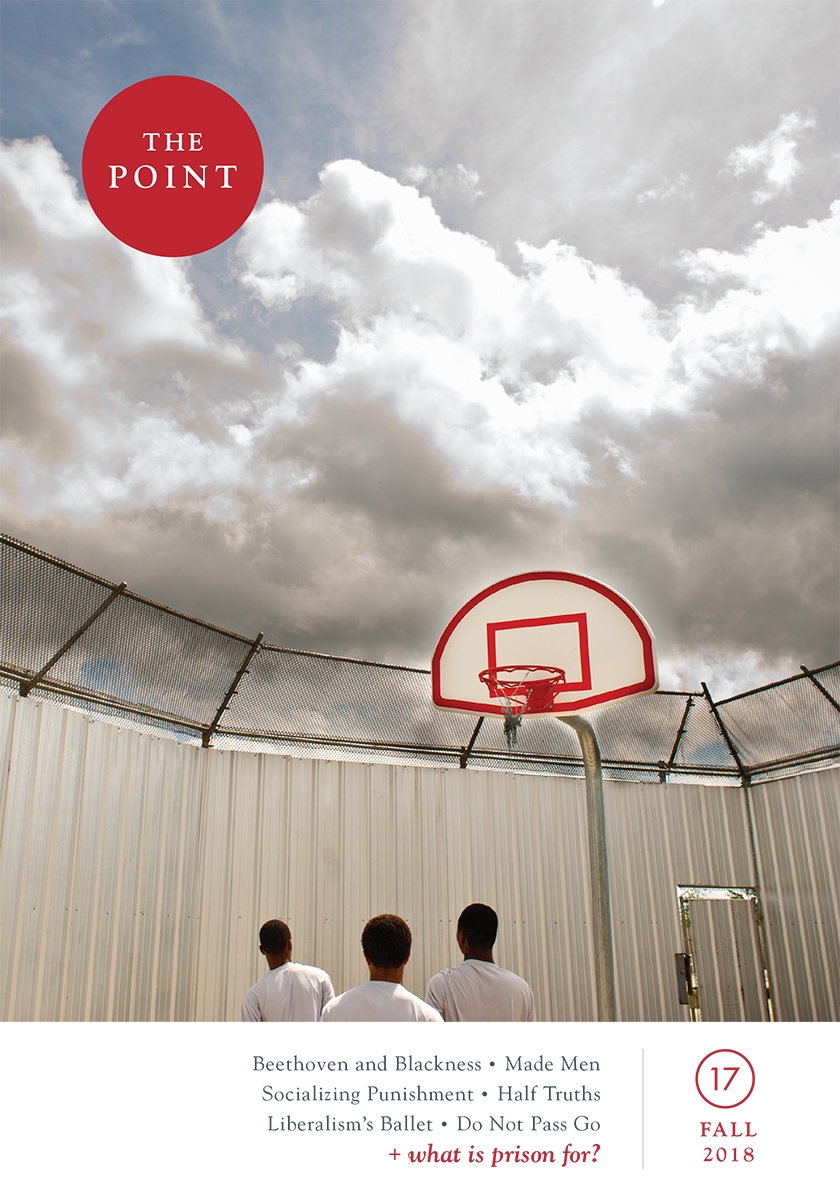Franz Kafka’s “In the Penal Colony” begins with a Traveler, described as a “great Western explorer,” learning about a “peculiar apparatus” of justice.
Johann Baptist Vanhal’s Concerto in D Major is a standard of the string repertoire.
The difficulty began with the title of a painting at an exhibition of work by the Spanish artist Joan Miró.
In retrospect, it was peculiar but not surprising that the Jewish-American novel peaked early—halfway through the beginning, to be precise.
“Socialism or barbarism?” The question animates and enshrouds today’s reinvigorated American left.
In 1971, the political-action arm of the American Quaker movement, the American Friends Service Committee, published its report on the state of crime and punishment in America.
Every prison and jail in Virginia has a series of cells used for solitary confinement.
This is the story of two court cases that have captured the American imagination, and of the dangerously misunderstood American institution at the heart of each case: the local jail.
On Hazen Street and 19th Avenue in Queens, there is a traffic light that sits to the left of the Rikers Island entrance post.
James Forman, Jr. is a professor of law at Yale Law School and author of the 2018 Pulitzer Prize-winning book, Locking Up Our Own: Crime and Punishment in Black America, a detailed history of how well-meaning but misguided black civic leaders and elected officials unwittingly contributed to building the system of mass incarceration in America.
James Forman, Jr. is a professor of law at Yale Law School and author of the 2018 Pulitzer Prize-winning book, Locking Up Our Own: Crime and Punishment in Black America, a detailed history of how well-meaning but misguided black civic leaders and elected officials unwittingly contributed to building the system of mass incarceration in America.
John J. Lennon was born in 1977, became involved in the drug trade as a teenager, shot a man in 2001 and was sentenced to prison in 2004. In 2010, he began to take creative-writing classes at New York’s infamous Attica Correctional Facility.
This summer, in partnership with Chicago Books to Women in Prison, we distributed a short survey to incarcerated women across the country, inviting them to tell us about their experience of living in prison.
Most elevators, in most buildings, don’t play music anymore. And yet “jazz” is probably how most people would identify the cheesy stuff known as elevator music.
For educated liberals, Jill Lepore is perhaps the most prominent historian in America today.
On July 16, 2015, German Chancellor Angela Merkel participated in a televised Q&A at a school for students with physical disabilities in Rostock, Germany.
In an article titled “Bikers for Jesus,” Denis Johnson described himself flippantly as “a Christian convert, but one of the airy, sophisticated kind.”
